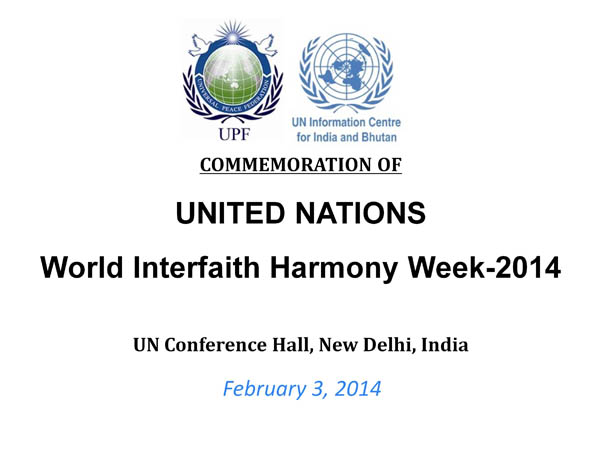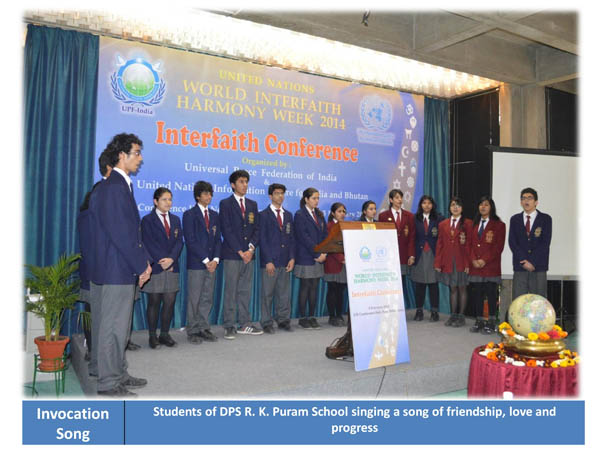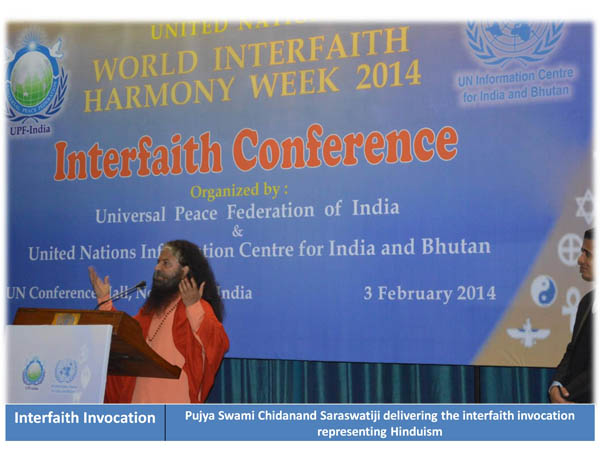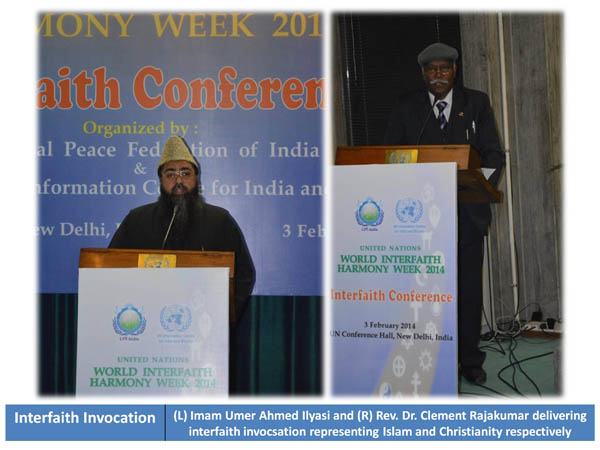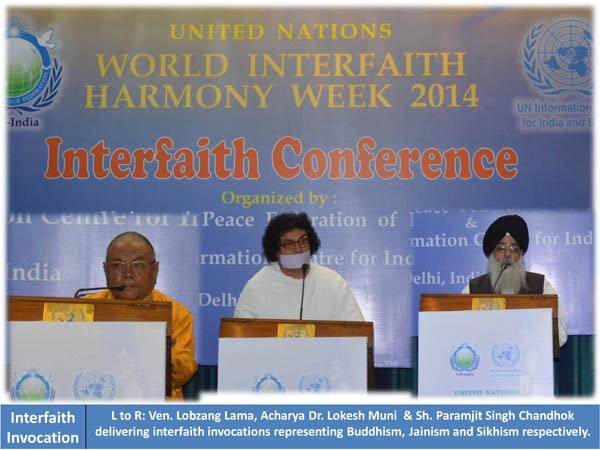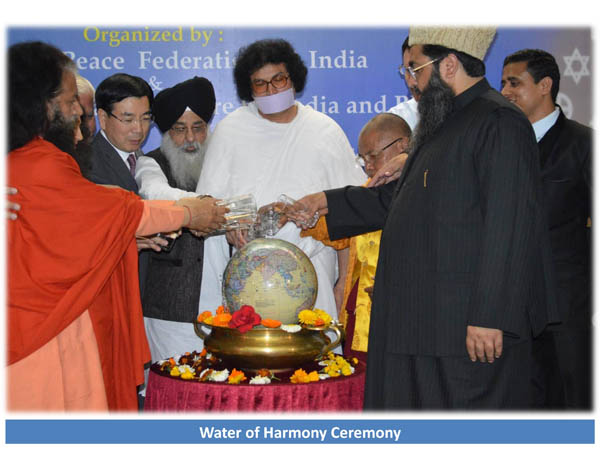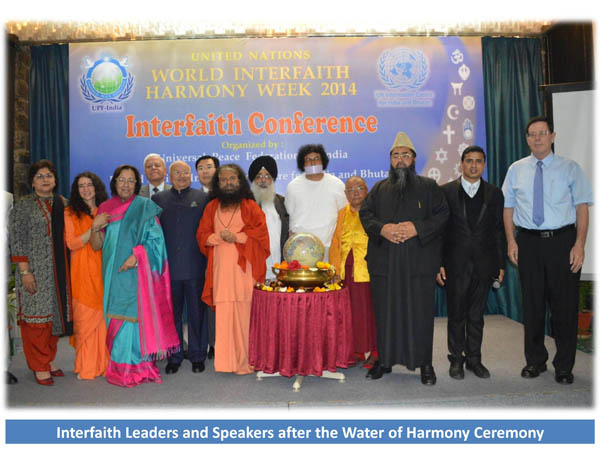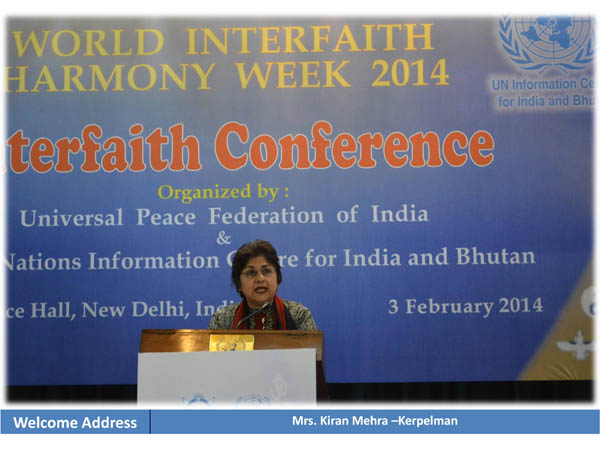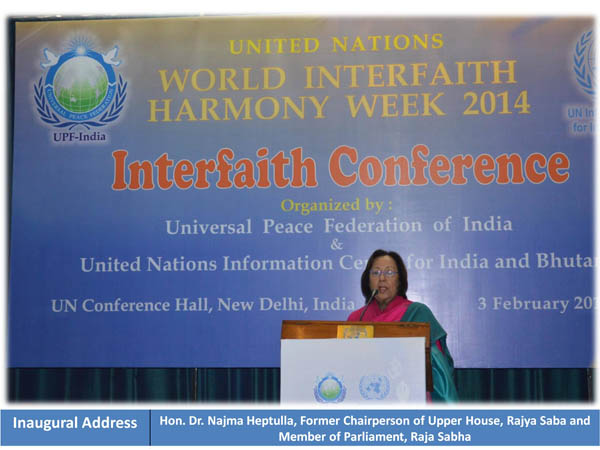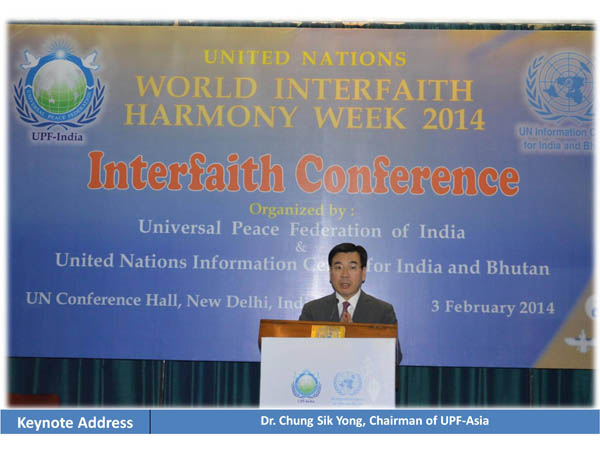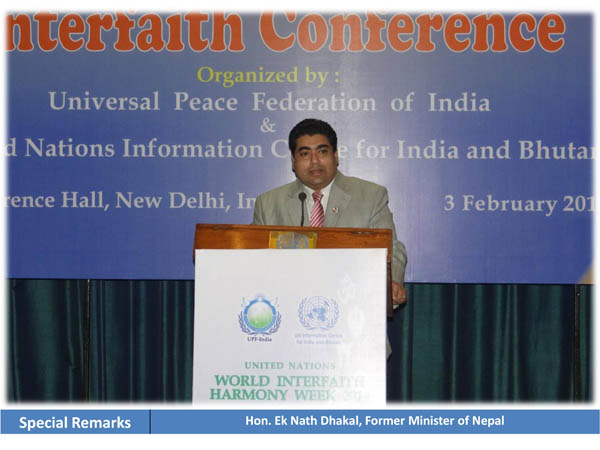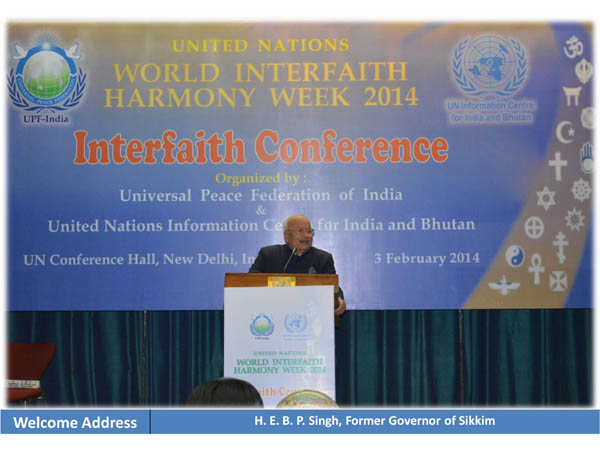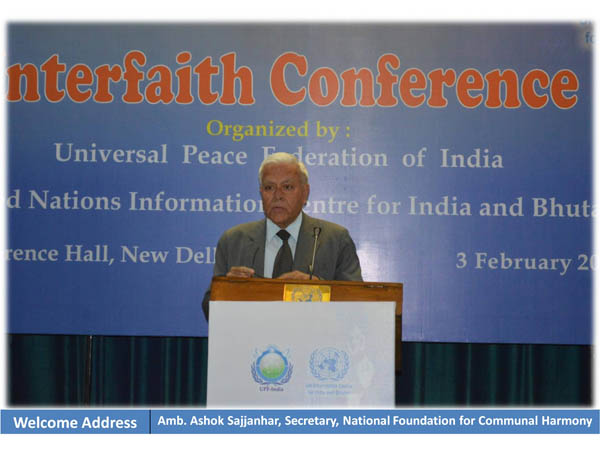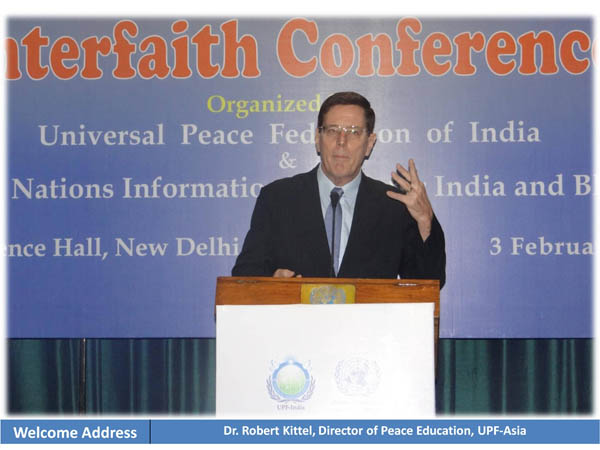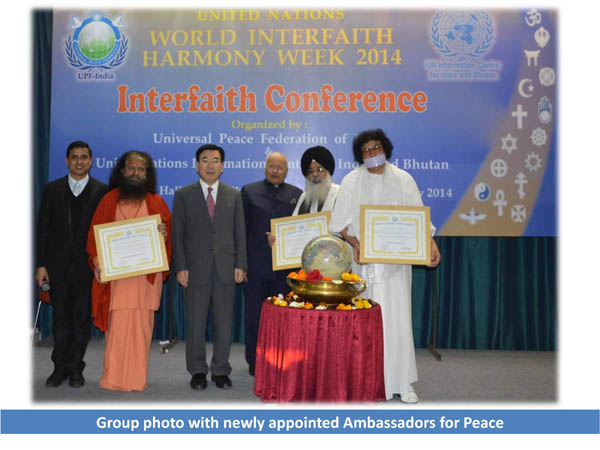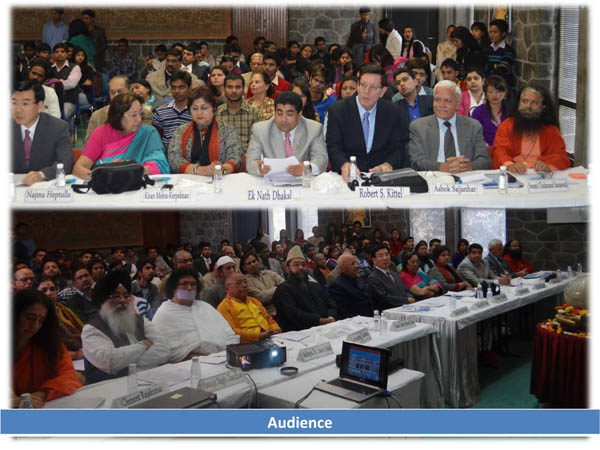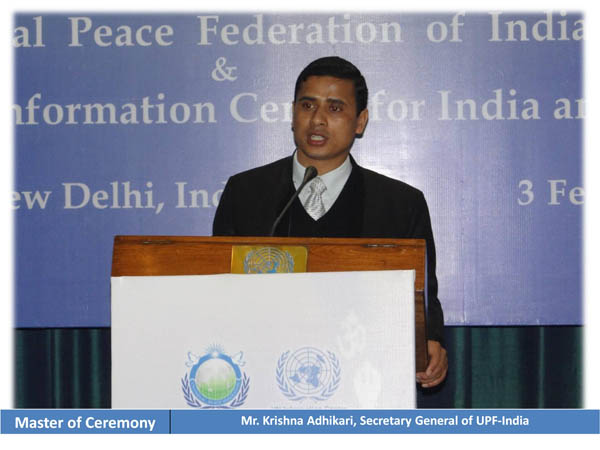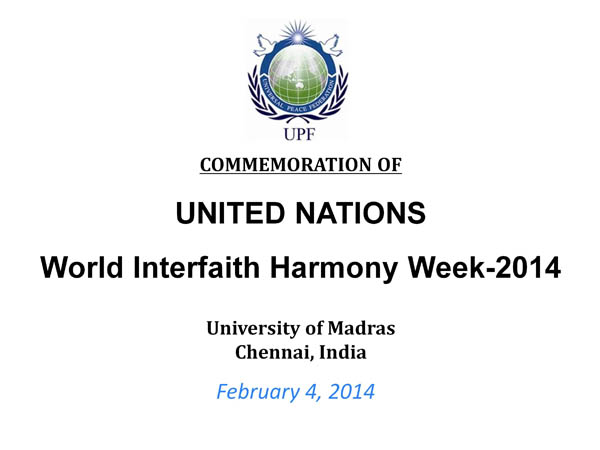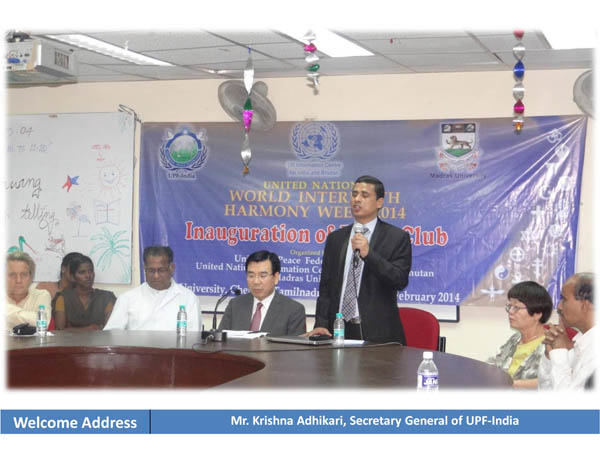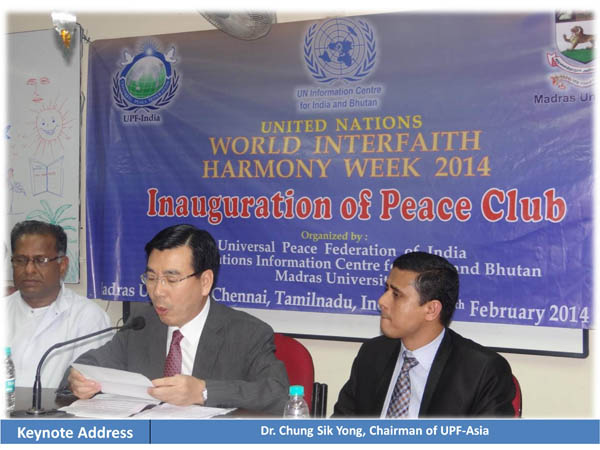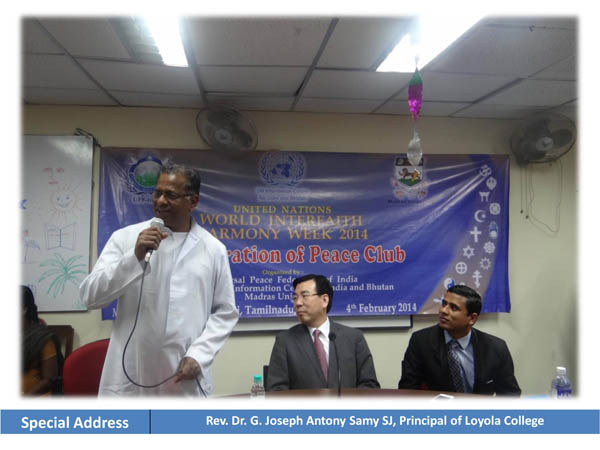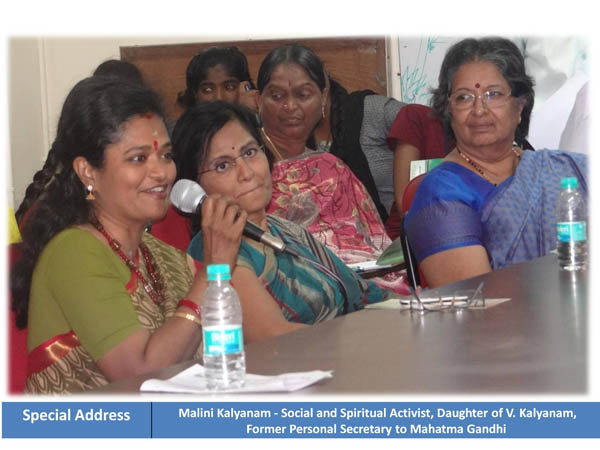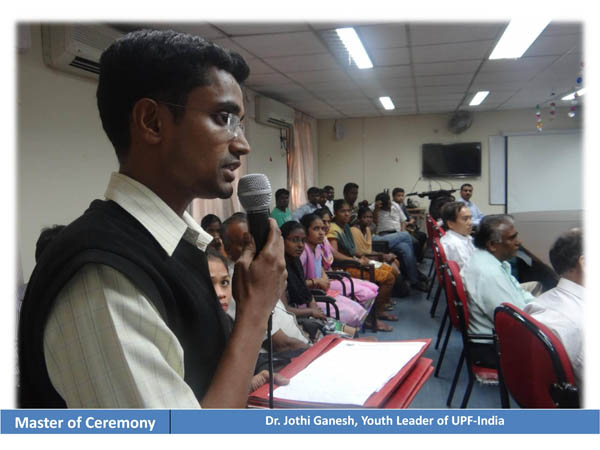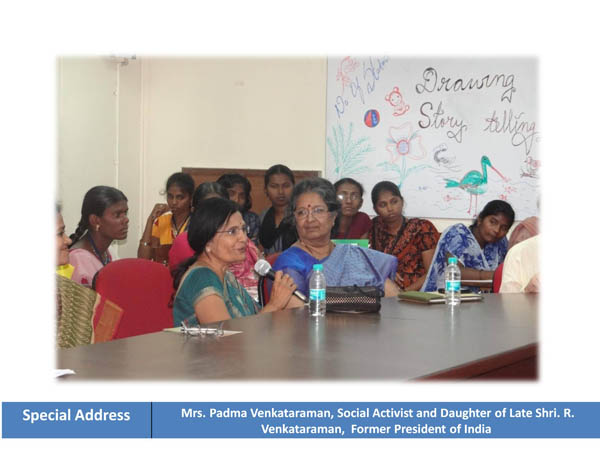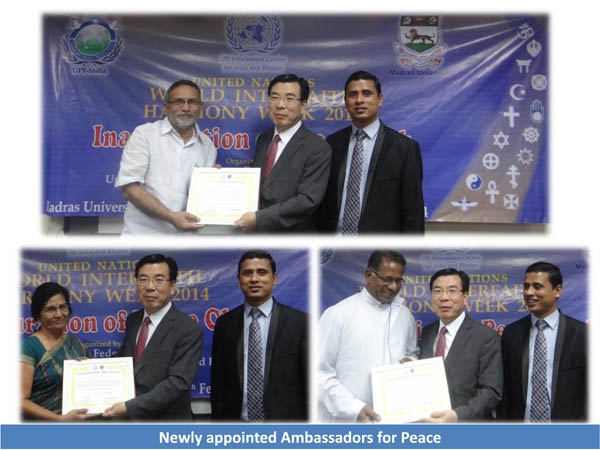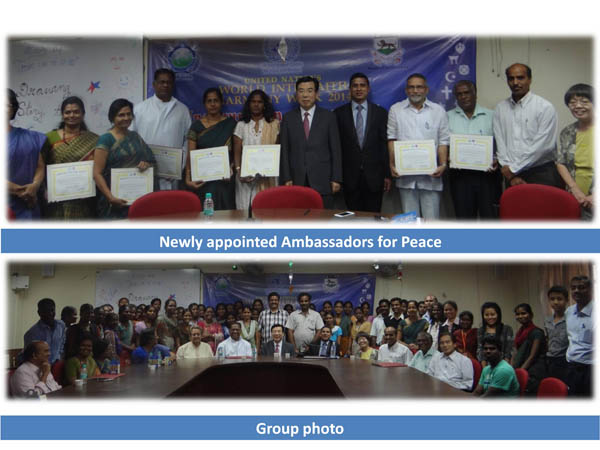Interfaith Harmony Week Programs in India Seek Altruism as Common Ground
Written by Dr. Robert S. Kittel, Director of Peace Education, UPF-Asia
Tuesday, February 4, 2014
Four UN World Interfaith Harmony Week 2014 programs were held throughout India. They addressed the role religions should collectively play in peacebuilding. Two seminars were held at the UN Conference Hall in the capital, New Delhi. Other programs were in Siliguri, West Bengal, and in the southern city of Chennai, Tamil Nadu. UPF-India was the main organizer of these events.
To build social harmony, religions must find common ground. They need to discover principles that they agree on – without compromising the tenets of their own faith traditions – in order to go beyond tolerance and engage in meaningful, constructive and sustainable peace initiatives.
An overview of the programs will be presented, followed by the religious teachings that acknowledge universal principles of goodness.
UN Information Centre, New Delhi - Jan. 4
Theme: Interfaith Harmony for Peacebuilding and Good Governance
The opening session of the seminar set the tone for the one-day seminar. Dr. Karan Singh, President of the Indian Cultural Council for Cultural Relations and Chancellor of Banaras Hindu University, spoke to an overflow crowd at the United Nations Information Centre. He acknowledged multiple causes of violence but nevertheless held firmly to the conviction that, “Without harmony among the world’s religions peace is not possible.” Supporting this, Dr. Thomas G. Walsh, President of UPF International, said that religion and spirituality are not outdated because science will not solve all our problems. “People are rethinking the role that religion occupies in modern society both individually and in global politics,” he emphasized. The third speaker, H.E. Dr. B.P. Singh, Chairman of UPF-India and former Governor of Sikkim, challenged people to pull down their “mind walls.” Stereotypes and prejudices in our minds are, he asserted, among the main causes of intolerance and violence. To underscore this, Hon. Ek Nath Dhakal, former minister in the Government of Nepal, cited the UN Secretary-General, Ban Ki-moon: “Whether on the world stage or in their communities, religious and cultural leaders have a responsibility to speak the language of tolerance and respect. This is a central message of World Interfaith Harmony Week.”
For details and photos, click here.
Siliguri, Darjeeling District, West Bengal - Feb. 1
Theme: Building Nations of Peace Is a Shared Responsibility
The chief guest was Prof. Dr. Rudranath Bhattacharya, a member of the Legislative Assembly of West Bengal and the Chairman of the Standing Committee on Health and Family Welfare. Dr. Bhattacharya, a medical doctor, asserted that peacebuilding begins in the family, which is where individual character is molded and barriers of nationality and religion overcome. Dr. Chung Sik Yong, president of UPF-Asia, supported this, saying, “Lasting peace cannot be based on political, military or economic power. Lasting peace must be based on the internal conditions rooted in the human heart which are connected with the heart of God.” Hon. Ek Nath Dhakal outlined three aspects of nation-building: 1) it requires a lot of sacrifice and commitment, 2) it requires genuine partnership and cooperation among state and non-state actors, and finally, 3) nation-building is our shared responsibility.
UN Information Centre, New Delhi - Feb. 3
Theme: Seeking Common Ground While Building Interfaith Harmony among Youth
Religious leaders from all major faith traditions of India affirmed their need to work together to send the message to young people that prejudice and intolerance are not acceptable. UN Information Centre Director Kiran Mehra-Kerpelman read the UN Secretary-General’s message and called for practical steps to promote interfaith harmony, starting with interreligious dialogue among young people in schools and colleges. The chief guest, Member of Parliament Najma Heptullah, spoke of the need to cast aside extremist ideologies and reassert the messages of peace and mutual understanding which are at the root of all religions. Dr. Yong explained that by “Living for the sake of others” (the motto of the UPF founder) we can be empowered to reconcile the divisions in our human family.
Chennai, Tamil Nadu - Feb. 4
Three partners — the United Nations Information Centre, UPF and Madras University — organized a program that brought together religious leaders, social activists and prominent educators, including:
Rev. Dr. G. Joseph Antony Samy SJ, principal of Loyola College
Dr. Chung Sik Yong, chairman of UPF-Asia
Mrs. Malini Kalyanam, social and spiritual activist, and daughter of V. Kalyanam, former personal secretary to Mahatma Gandhi
Mrs. Padma Venkataraman, social activist and daughter of the late Shri R. Venkataraman, former president of India.
Mr. Krishna Adhikari, secretary general of UPF-India
Dr. Jothi Ganesh, medical doctor and UPF-South India representative
Mr. Karunakaran led the interfaith prayers. In addition to launching a Peace Club on the campus of Madras University, the program included the appointment of seven prominent citizens of Chennai as Ambassadors for Peace.
Universal principle of goodness
All religions teach altruism or living for others as the essence of being “good.” Religions encourage and instruct people to sacrifice for the sake of others without ulterior motives or seeking personal merit. This is a common ground that can take interreligious relations beyond mere tolerance.
| Islam |
Do not expect, in giving, any increase for thyself! Qur'an 74:6 |
| Sikhism |
Where egoism exists, [God] is not experienced, Adi Granth, Maru-ki-Var, M.1, p. 1092 |
| Hinduism |
Of sacrifices, the sacrifice performed… by those who desire no reward, is the nature of goodness. Bhagavad Gita 17:11 |
| Daoism |
To nourish the mind there is nothing better than to make the desires few. Mengzi |
| Christianity |
Whoever seeks to gain his life will lose it, but whoever loses his life will preserve it. Luke 17:33 |
| Buddhism |
Misers certainly do not go to the heavens… but noble men find joy in generosity, and this gives them joy in higher worlds. Dhammapada 13:177 |
If you find this page helpful and informative please consider making donation. Your donation will help Universal Peace Federation (UPF) provide new and improved reports, analysis and publications to you and everyone around the world.
UPF is a 501(c)(3) tax exempt organization and all donations are tax deductible in the United States. Receipts are automatically provided for donations of or above $250.00.
|
Donate to the Universal Peace Federation: Your donation to support the general programs of UPF. |
Donate to the Religious Youth Service (RYS): Your donation will be used for service projects around the world. |
Donate to UPF's Africa Projects: Your donation will be used for projects in Africa. |
Related Articles

Australia
UPF-Australia Convenes Mutual Prosperity Summit
Melbourne, Australia—The Mutual Prosperity Summit focused on “Rethinking Our Economic Models.”


















